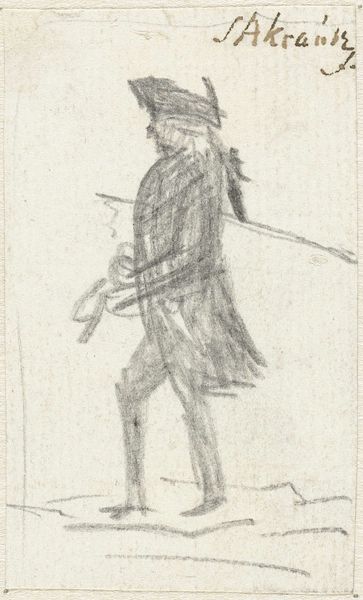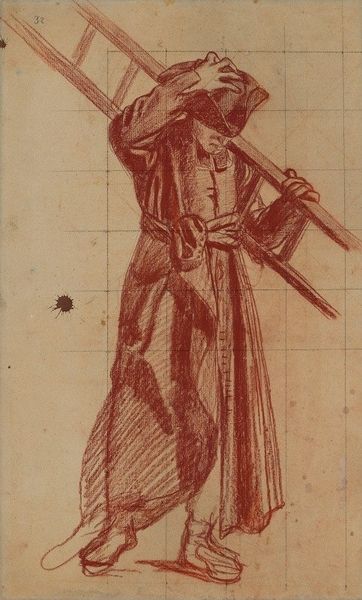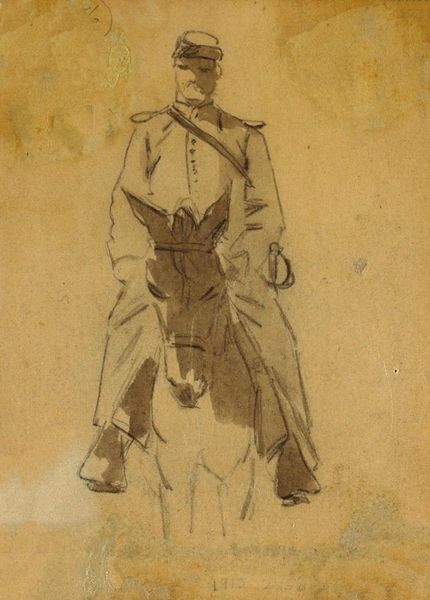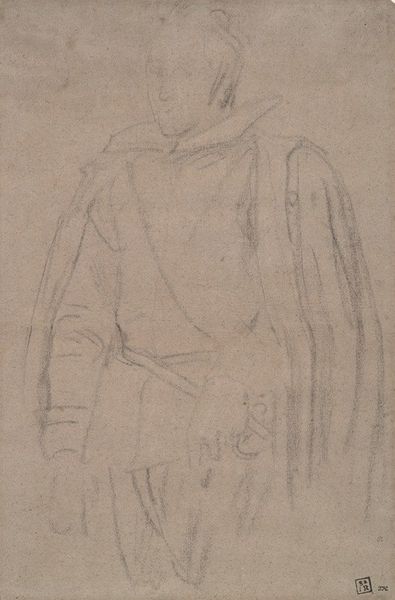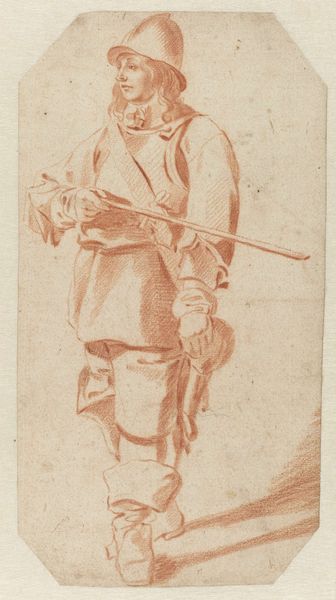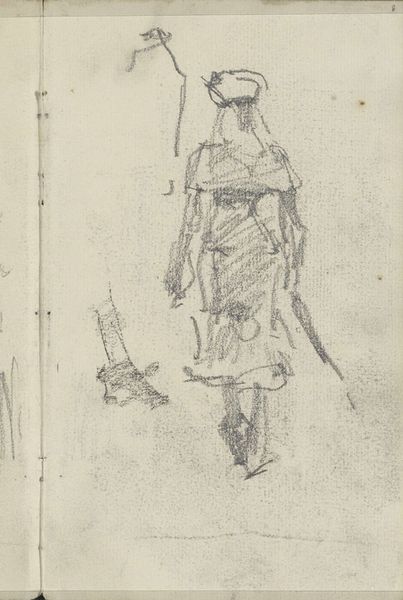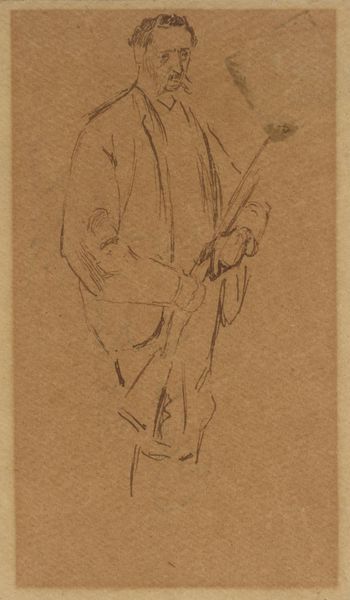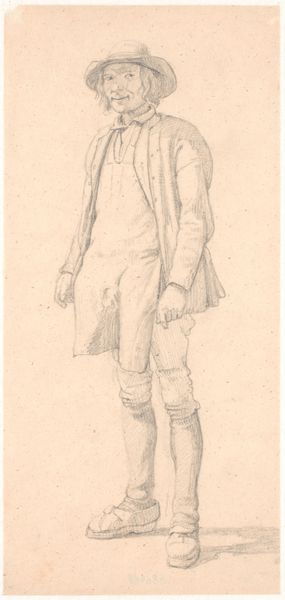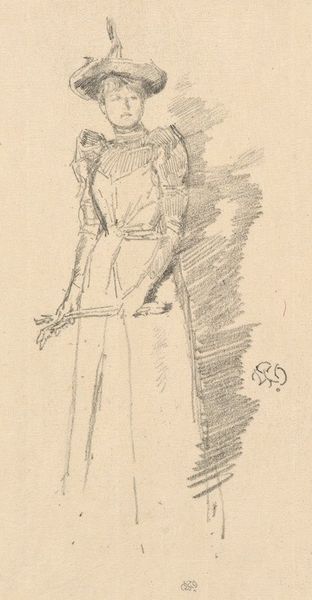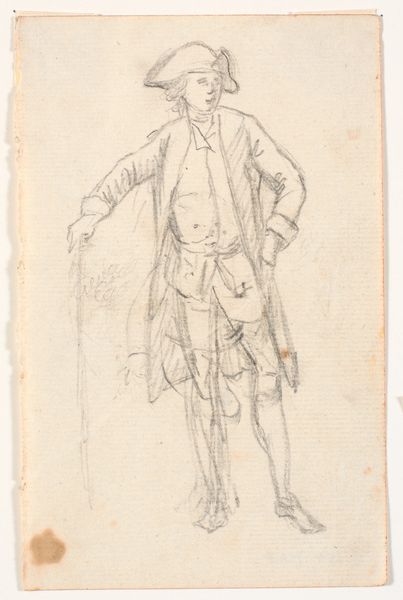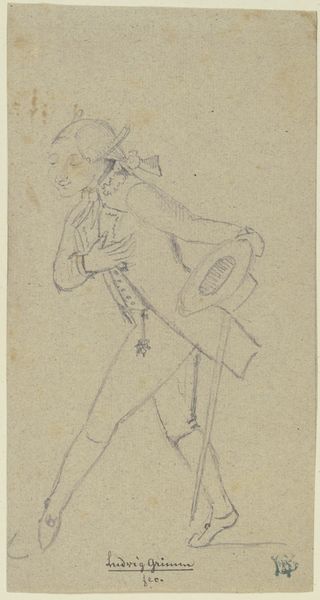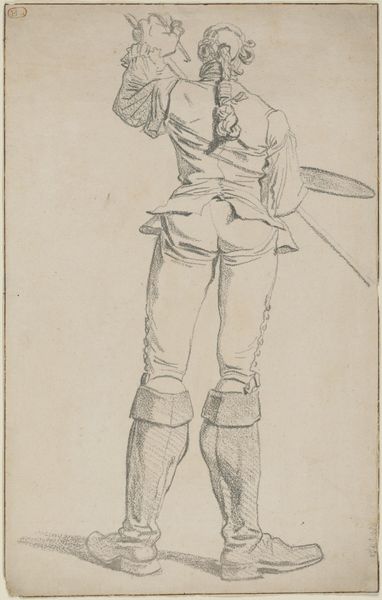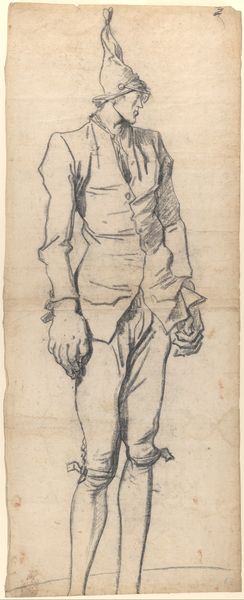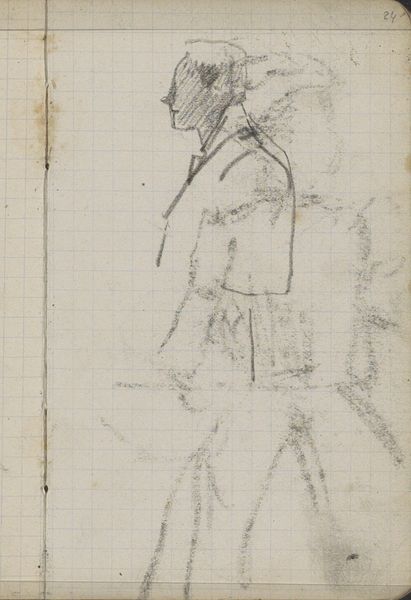
drawing, pencil
#
portrait
#
drawing
#
pencil
#
academic-art
#
realism
Copyright: Public Domain: Artvee
Editor: Here we have Winslow Homer's pencil drawing, "Soldier with Sword and Pipe," created in 1862. It's a fairly simple sketch, but there's something quite pensive about the soldier's posture. How do you interpret this work? Curator: I see a powerful intersection of war and everyday life. Homer made this drawing during the Civil War, a conflict deeply rooted in the socio-political identity of America. Consider the sword, a symbol of military action and power, juxtaposed with the pipe, an object of leisure and contemplation. What does it tell us about the experience of a soldier? What are they fighting for and what did they leave behind? Editor: So you're saying the pipe offers a glimpse into the soldier's humanity? Curator: Precisely. And note the seemingly relaxed posture, contrasting with the reality of war. The pipe, a common solace, underscores the soldier's longing for normalcy amidst conflict. In this sketch, we can start thinking about how race and class structure the roles each soldier would have in the conflict. We also need to note the social implications and consequences of military service, which impact one's identity. Editor: That's fascinating! It never occurred to me to think of a portrait beyond its immediate likeness. It makes me reconsider other portraits too. Curator: That is great. Approaching art with such critical thinking can reveal many underlying social meanings within each piece and across history.
Comments
No comments
Be the first to comment and join the conversation on the ultimate creative platform.
